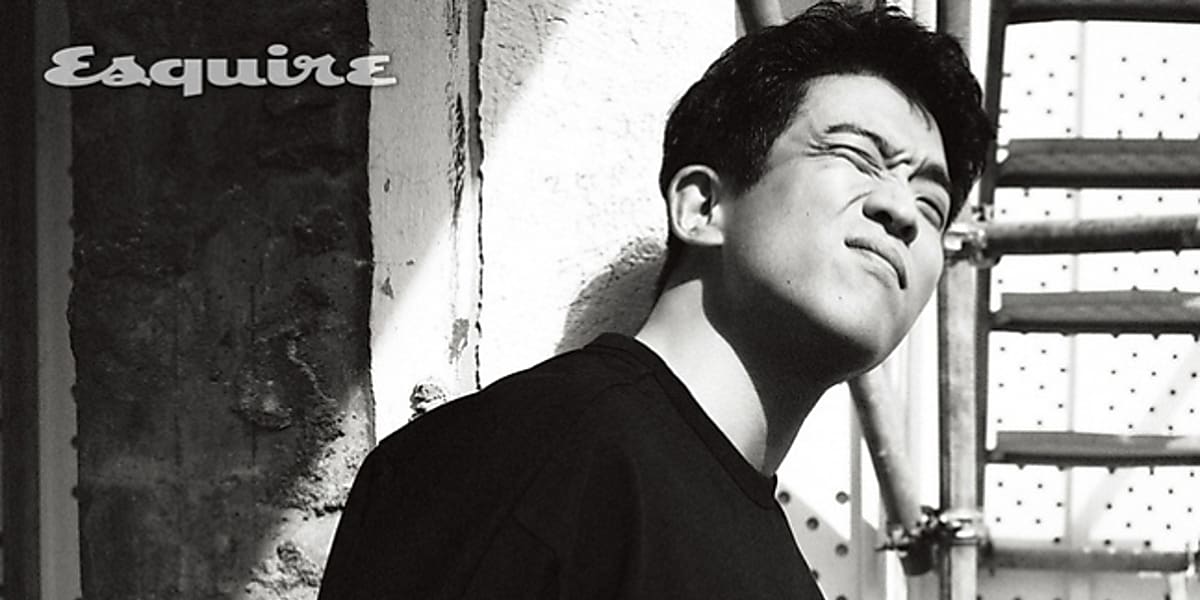Sung Anh is a South Korean chef renowned for his refined cuisine that mixes Asian culinary traditions, like using fermented ingredients, with techniques from international haute cuisine. At the age of 12, Sung Anh immigrated from South Korea to the United States. Settling in California, his parents ran a Chinese restaurant. After serving in the U.S. Army, Sung Anh dreamed of becoming a Porsche mechanic.
However, a chance encounter with a cooking school changed his destiny forever and marked the beginning of an incredible journey! Sung Anh worked at top restaurants in the United States, South Korea, and Japan before opening his first restaurant in San Francisco: Mosu, from “kosumosu,” meaning “flower of the cosmos” in Korean.
He later moved his restaurant to South Korea, where he reached the pinnacle of his career. In 2023 and 2024, he earned the prestigious distinction of three Michelin stars, the only chef to boast this recognition in the country. A true ambassador of Korean gastronomy globally, Sung Anh has participated in numerous culinary events and television programs. The recent Netflix series Culinary Class Wars (released on September 17) is prominent among them. This spectacular show is a competition between about a hundred chefs—ranging from up-and-coming talents to star-studded culinary greats—as they vie for the title of South Korea’s best chef.
WAKAPEDIA’S SUNG ANH
We had the pleasure and honor of meeting Chef Sung Anh in Tokyo on the occasion of his collaboration with another renowned chef, Luca Fantin. Italian by birth but Japanese by adoption, Luca Fantin is famous for his contemporary interpretations of Italian cuisine paired with the seasonal bounty of Japanese ingredients. After training in prestigious restaurants, including Cracco, Gualtiero Marchesi‘s Osteria dell’Orso, Akelarre, Mugaritz, and Tokyo’s Ruy Gin Restaurant, Luca is now the executive chef of the Bvlgari Ginza Tower restaurant in Tokyo. Here, Luca and Sung Anh invited us to the exceptional FOUR HANDS special event. Since we had just seen Sung Anh in Culinary Class Wars—a kind of gastronomic Squid Game—we were also expecting a battle between great chefs. Instead, it was an evening of harmony, culinary sophistication, and cultural dialogue. Luca enchanted us with his traditional yet modern cuisine, based on an incredible pairing of Japanese ingredients and Italian flavors. Sung Anh amazed us with his creativity and the boldness of his contemporary cuisine, which remains true to his Korean roots (God save the kimchi!). In short, it was an over-the-top, super-star, super-international dinner, just how we like it!
After the meal, we had the opportunity to discuss with the chefs. Despite being in his early 40s, Sung Anh’s wisdom and diverse life experiences amazed us. We were literally hanging on his every word because we were so eager to know everything about him. Curious as well? Then read the interview below!
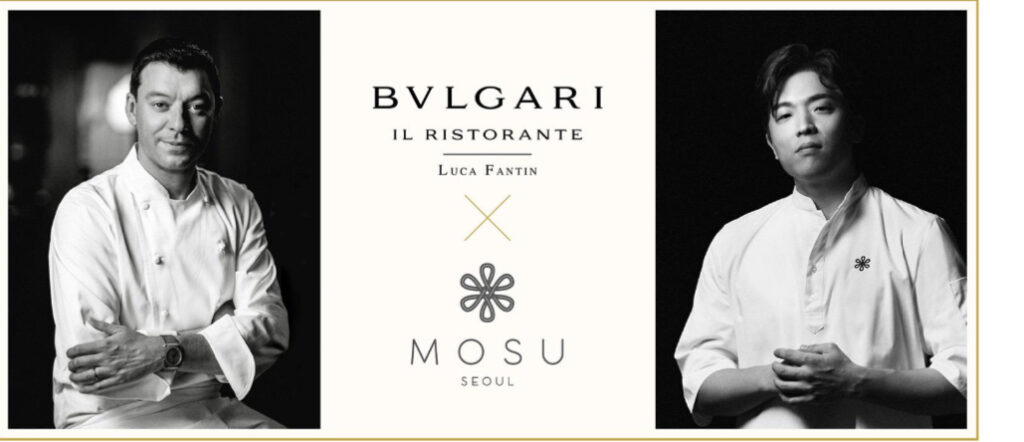
Wakapedia: Thank you for your time, we know you are very busy and tired after preparing this sublime dinner for us! We promise not to be too long-winded! First of all, tell us about your journey. How did you get here? Sung Anh, let’s start with you!
Chef Sung Anh: Tough question—it’s a long story. Give me a glass of whiskey, and I’ll tell you all about it! (laughter) I don’t know where to start, but let’s say that sometimes things just happen in life. As a child, I never thought I would become a chef. I immigrated to the United States as a teenager and integrating was difficult. My family and I lived in a precarious situation, but I fought my way out of it. When I finished high school, I knew I wouldn’t go to college, so I enlisted in the army and was sent to Iraq.
Wakapedia: To Iraq! You didn’t take the easy road…
Chef Sung Anh: Yes, I know. In fact, I didn’t even tell my parents.
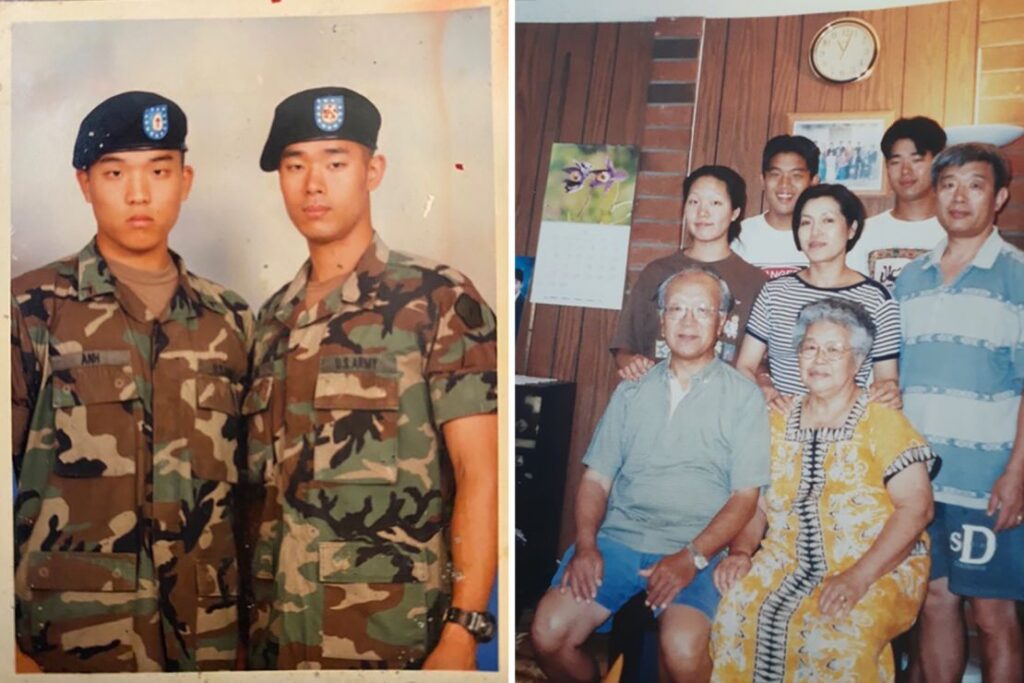
Wakapedia: Wow… then, then, then?
Chef Sung Anh: Then, when I came back to California, because I loved cars and racing, I told myself I would become a mechanic, so I enrolled in a vocational school.
Wakapedia: You? A mechanic? We never would have imagined!
Chef Sung Anh: Yes, exactly, but let me finish my story! (laughter)
Wakapedia: You’re right, sorry. But you are so interesting that we can’t wait to hear more!
Chef Sung Anh: Hahaha, is that so?
A week before I started mechanic school, while driving, I saw several young chefs walking into a cooking school. I knew nothing about the profession, but I was fascinated by their distinguished clothing, immaculate jackets, and plaid pants. I was 24 years old at the time; I had never been interested in cooking, and I preferred cars… yet at that moment, I felt such intense emotion, like a calling! From one day to the next, I canceled my application for vocational school and decided to become one of those men because they looked excellent to me.
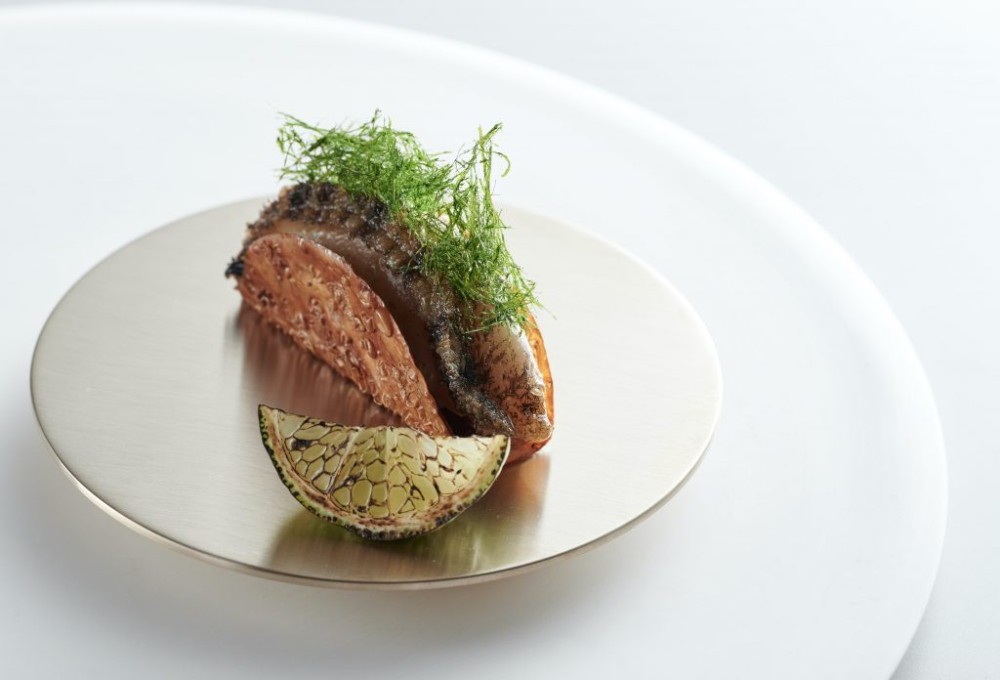
Wakapedia: Wow, what an unlikely story! Do you think your experience in the military and your passion for mechanics influenced your cooking in any way?
Chef Sung Anh: Everything in life affects your personal development and, therefore, your cooking, consciously or unconsciously. Everything I have been in the past—an immigrant who breaks his back to become somebody, a mechanic who takes apart an engine to make it work, a soldier who leaves for a war zone—and who I am today is present in my food. It takes determination, courage, and patience to cook. So yes, I can say that my life path has made me the chef I am today.
Wakapedia: What about you, Luca? Do you find commonalities with Sung Anh’s story? Or is your path to becoming a chef very different?
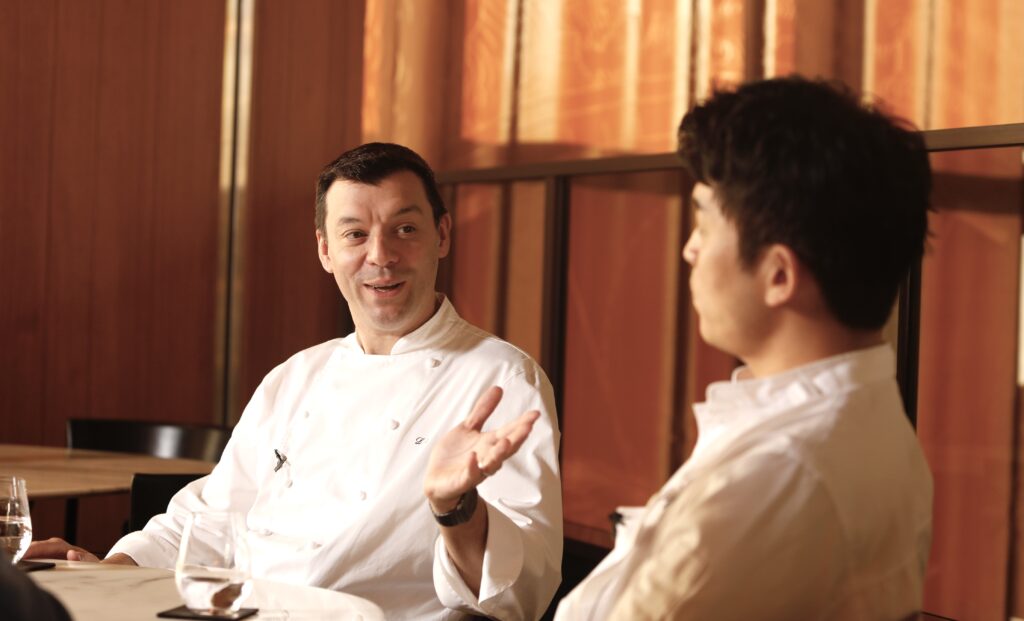
Chef Luca Fantin: My path is very different from his, but I agree with the importance of courage and determination to become a successful chef. I think it’s possible to become anything you want, but you need a precise goal. For example, when I was young, I always wanted to do a marathon, but I wasn’t sure I could because I had little time to train. The first time I succeeded, I ran slowly and arrived exhausted, but the next time, I was able to run faster and got better and better as time went on. Being a chef is a similar journey!
Wakapedia: When did you know you would become a chef?
Chef Luca Fantin: When I was 18, I was playing rugby and had to decide whether to become a professional player or find another path. In the end, cooking convinced me (I must admit, my mother cooked very well!), and I dedicated myself, body and soul, to this path. Hotel school allowed me to work in a Michelin restaurant, and I fell in love with haute cuisine there. I was interested in the best ingredients. I admired the great chefs like Michel Bras and Alain Ducasse…they were my idols! And after many years of perseverance, those same chefs are now coming to eat at my restaurant. It’s a dream come true, thanks to commitment and sacrifice. Nothing is guaranteed, but if you really want something, you always succeed in the end. I say the same thing to my 10-year-old son, who wants to be a soccer player. The path can be a long, uphill battle, but if there is a will, there is a way.
Wakapedia: You’re such a role-model father—it’s so inspiring!
Another question for both of you: since we are in Tokyo, tell us what you like about Japanese cuisine.
Chef Sung Anh: The culture of quality ingredients, attention to detail, and the right balance of flavors.
Chef Luca Fantin: I would say the seasonality of products, which is an essential element in my vision of cooking.
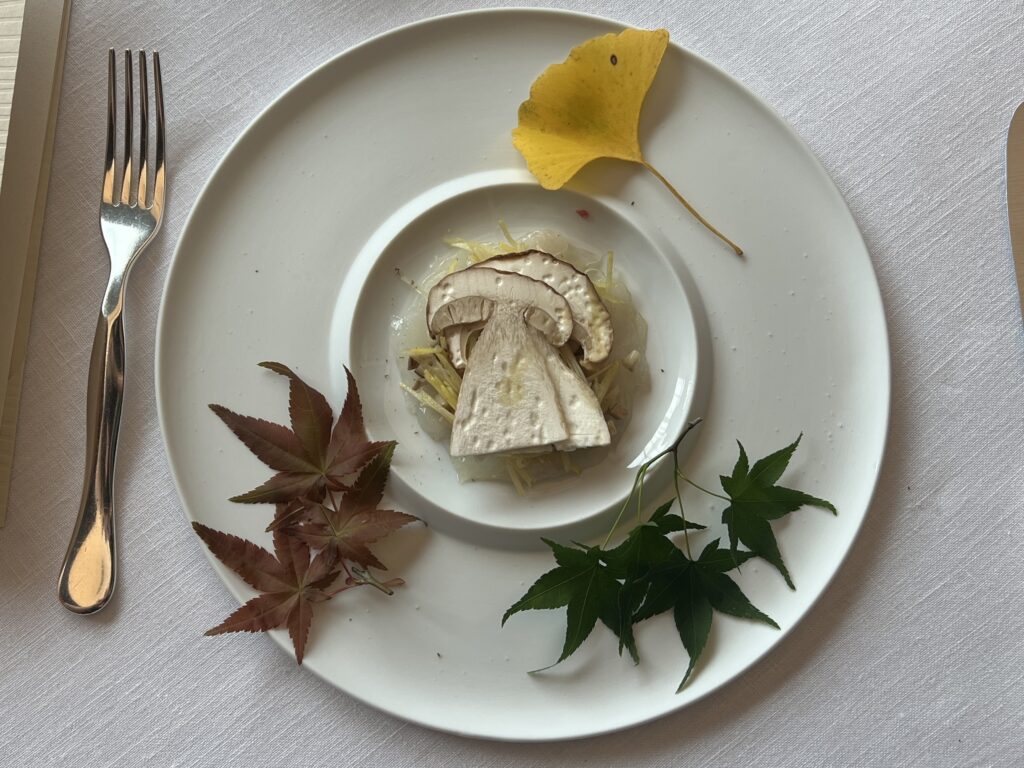
Wakapedia: Sung Anh, as a Korean, how have you been influenced by Japanese cuisine and culture?
Chef Sung Anh: This is a question I am often asked. To answer, I can’t help but mention a part of my family history. My grandparents lived during the annexation of Korea by Japan, and at that time, they were forced to learn Japanese culture and speak the language. When they raised me, they naturally spoke Japanese and cooked Japanese dishes rather than Korean ones. My grandmother often prepared rice with kanpira (a Japanese side dish, usually consisting of sautéed and stewed root vegetables, ed.). Japan is part of my culture, my memories, and my childhood.
Wakapedia: Do you think back to those flavors and try to reproduce them in your dishes?
Chef Sung Anh: It’s a more complex mechanism. I don’t remember the flavors exactly, but I remember the emotions I felt. I remember when I was helping my grandmother, I felt the warmth of her body next to mine; I remember her gestures and the connection we had. When I cook something Japanese-inspired, I take the memories and love I shared with my grandmother and try to put them into the dishes I create.
Wakapedia: Wow, what a touching anecdote, if you tell us more, we might get teary-eyed! One last question before we close: what does art mean to you? Is cooking an art?
Chef Sung Anh: I consider myself more a craftsman than an artist. Sure, star chefs create outstanding dishes, but food is not just something to look at or debate about; it has a specific purpose: to satisfy the palate.
Chef Luca Fantin: I’m not particularly interested in art, and I’m not an expert, but I feel a bit like an artist because I can turn a piece of meat into a source of emotion. It’s as if I give food a second life.
Wakapedia: In short, a little bit artist, a little bit God! (laughter)
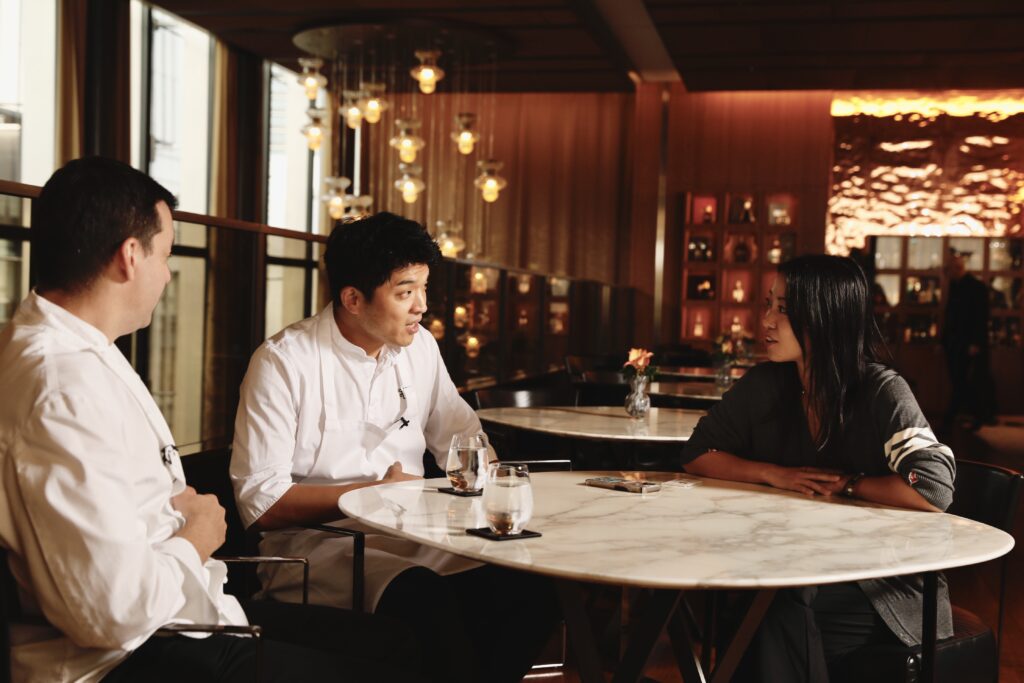
Description & Interview: Sara Waka
Edited by: Kassandra Frua De Angeli






